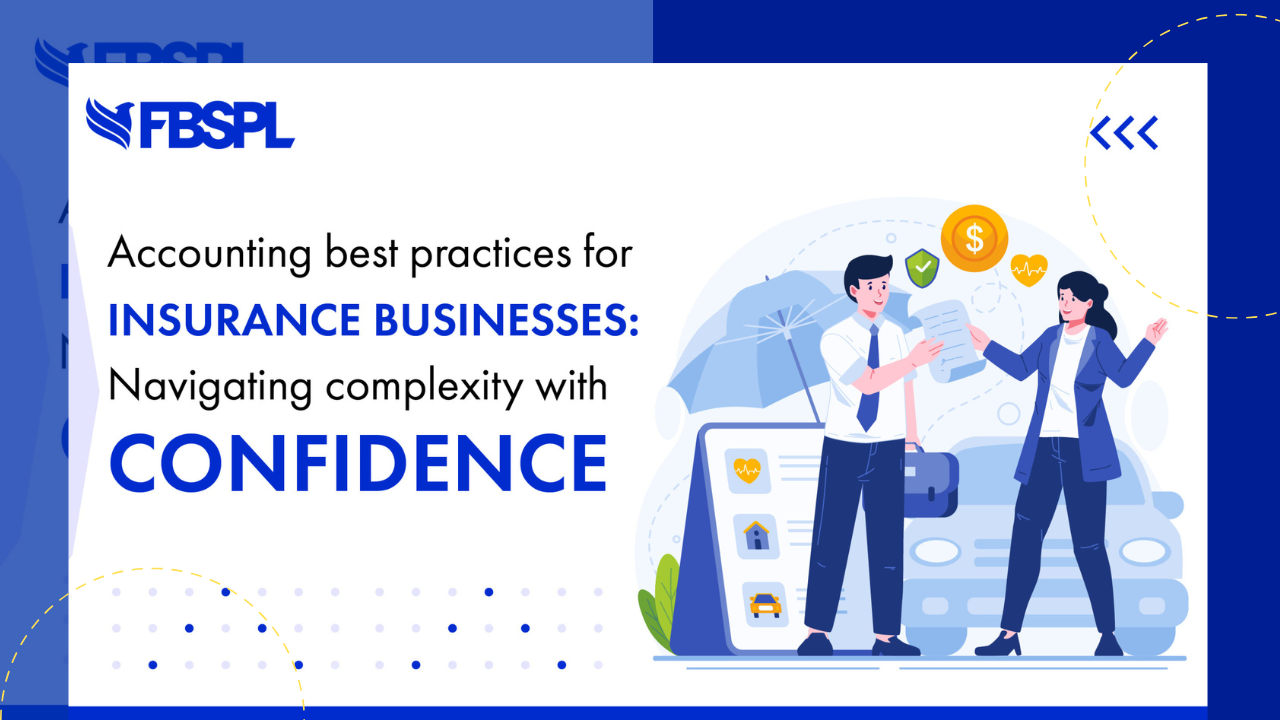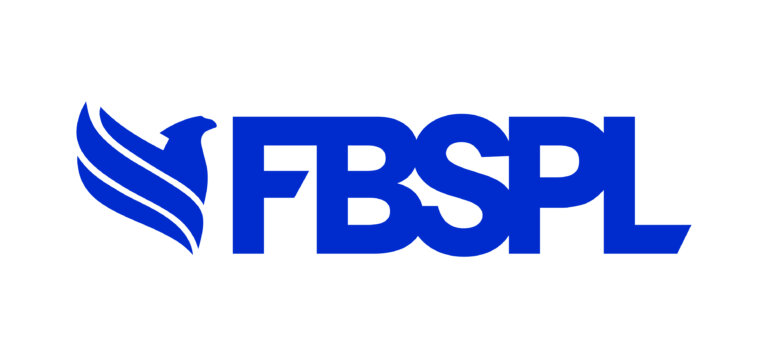Accounting best practices for insurance businesses: Navigating complexity with confidence

This article is a submission by Fusion Business Solution (P) Ltd.-FBSPL. Fusion Business Solution (P) Ltd. (FBSPL) is a Udaipur, India-based company providing Business Process Outsourcing, management, consulting, and IT services, with operations in New York, USA.
“A practical guide to tackling accounting challenges in insurance, staying compliant, and using smart strategies to turn back-office tasks into business growth”
Ask any insurance leader what keeps them awake at 2 AM, and you’ll rarely hear “marketing strategy” or “customer service.” More often, it’s the money trail.
Accounting in this industry doesn’t move in straight lines. Premiums flow in, but not all of them belong to you. Commissions are split in multiple directions. Claims pile up with messy timelines. Meanwhile, regulators hover, watching every decimal.
The scary part? Even a small slip in reporting can turn into major compliance trouble. That’s the challenge of accounting for insurance; you’re playing by rules that keep changing while still trying to stay profitable.
Many agencies are still running on age-old spreadsheets or generic systems not designed for the nuances of insurance. The result? Missed reconciliations, late reports, lost trust.
In this post, let’s break down the biggest accounting challenges agencies face, practical accounting best practices that actually hold up, and how to stay ahead of compliance.
Accounting for insurance agencies: Common challenges
Here’s the thing: Insurance agency accounting is not a “copy-paste” of traditional business accounting. You don’t just record expenses, tally sales, and call it a day.
Instead, you’re dealing with money that technically isn’t yours, premiums you’re holding in trust, commissions that need slicing, and claims that can stretch across quarters.

Some recurring hurdles:
Revenue recognition
Premiums come in, but only part of them is true revenue. The rest belongs to carriers or sits in trust accounts. Misclassify this, and regulators will come knocking.
Claims complexity
Claims don’t follow a neat script. Some drag on, others get disputed, reserves need adjusting, all while your books wait for clarity.
Delayed reporting
Too many agencies close their books once a month, often with outdated spreadsheets. By the time leaders see the numbers, they’re already stale.
Technology gaps
Legacy systems slow everything down. Staff spend hours reconciling what modern software could automate.
Compliance weight
Each state adds its own twist. Add federal oversight, and suddenly you’re knee-deep in regulations.
Scaling pains
Growth means more policies, more transactions, more reconciliations. Without scalable insurance accounting services, finance teams drown.
These aren’t just minor irritants. They’re landmines. One wrong step can lead to fines, cash flow issues, or worse, lost client confidence.
Best practices for insurance accounting
Now, let’s talk about how smart agencies deal with this. Not theory, not “perfect world” answers, but the stuff that actually works in reality.
These are the best practices in accounting and finance that keep agencies resilient.
Pick the right system. Generic accounting tools don’t cut it. That’s why so many agencies adopt QuickBooks for insurance agency operations. It handles multi-layered workflows with less pain.
Segregate accounts. Never mix premium trust accounts with operating funds. Keep them clean, or you risk compliance violations.
Reconcile often. Daily or weekly reconciliations are better than end-of-month surprises. It saves you from hours of “what went wrong” later.
Track the right KPIs. Loss ratios, expense ratios, claims cycle time, those numbers tell you the real story, not just the balance sheet.
Standardize processes. Whether its claims payouts or month-end close, consistent workflows mean fewer mistakes.
Train your people. A system is only as good as the folks running it. Regular compliance training goes a long way.
Bring in experts. Hiring a qualified insurance accountant or partnering with specialists ensures you’re not guessing with regulations.
When agencies nail these habits, accounting strategies stop being a bottleneck. They become growth drivers.
Staying ahead of the curve: Ensuring regulatory compliance in insurance
By now, everyone knows that regulatory compliance in insurance isn’t optional; it’s survival. And the rules aren’t static. They keep shifting, which means finance teams need to stay ahead of the curve.
Always on the radar:
- GAAP/IFRS standards. Using the right accounting framework keeps your reporting clean and transparent.
- Premium trust accounts. Regulators are strict about separating client funds. One slip here is a red flag.
- Taxes. Commission income, claims payouts, reserves, it all needs precise tax treatment.
- Data security. With personal client data in the mix, compliance isn’t just financial, it’s also about privacy (HIPAA, GDPR).
- Deadlines. Late financial reports invite penalties and suspicion.
This is where accounting & bookkeeping solutions with built-in compliance checks prove invaluable. They flag issues before they blow up.
Smarter financial processes: Tech at the center
Sometimes manual accounting feels like a burden. Insurance firms embracing modern tools are moving faster, staying compliant, and spotting issues earlier.
What’s making the biggest difference:
- Cloud platforms for real-time access.
- Automation cuts hours of grunt work.
- Agencies are using AI in financial reporting to detect anomalies earlier and build sharper forecasts.
- Accounting system integration that links policy, CRM, and finance so leaders see a single version of the truth.
- Dashboards that replace endless spreadsheets with live KPIs.
Agencies that cling to old spreadsheets? They’ll get left behind. Tech is no longer optional; it’s the baseline.
Strategies that actually help
Progressive agencies aren’t just surviving; they’re finding smarter ways to run their books. Here’s how:
- Cross-functional teams where finance talks directly with claims and underwriting.
- Outsourcing repetitive tasks to accounting & bookkeeping outsourcing services, freeing staff for higher-level work.
- Using analytics not just for reporting, but also for forecasting premiums and claims.
- Training teams on new compliance rules and systems.
- Diversifying expertise across tax, audit, and compliance so nothing slips.
The future: What’s next for insurance agencies
The industry is shifting fast, and challenges in insurance accounting are only going to evolve. Expect:
- AI and Automation everywhere. Reconciliations, tax filings, and claims matching are automated.
- Predictive decision-making. Data anticipating client needs and premium shifts.
- Compliance tech. Continuous monitoring instead of annual check-ins.
- Outsourcing growth. Firms are relying more on specialized insurance accounting services for expertise, not just savings.
- Fully integrated platforms. Finance, CRM, and policy management are converging into a single ecosystem.
Agencies that adapt early won’t just survive, they’ll thrive.

Outsourcing: More than a safety net
Many agencies hesitate to outsource, worried about control. But the truth? Done right, outsourcing gives you more control.
Why? Because the basics are handled with precision, freeing leaders to focus on strategy.
A strong outsourcing partner brings:
- Experienced teams who know accounting for insurance agencies inside out.
- Tech platforms designed for compliance and scale.
- Flexible capacity without the HR headaches.
- Lower infrastructure costs.
- More bandwidth for growth.
For firms that want tailored accounting and bookkeeping services, the difference is night and day.
Driving success with smarter accounting
Insurance accounting is messy. There’s no escaping it. Premiums flow in like clockwork, but only a slice is yours to touch.
Claims drag on longer than anyone likes, sometimes get disputed, and regulators seem to enjoy changing the rules just to keep everyone on their toes.
It’s the kind of environment where spreadsheets fall apart fast, and late nights are almost guaranteed.
Agencies that survive aren’t just lucky. They build accounting strategies that hold up under pressure, embed compliance into daily habits rather than treating it as a monthly chore, and use tools that actually make sense for the chaos of insurance.
A solid system, regular reconciliations, and some smart automation can turn accounting from a nightmare into a roadmap.
And yes, there will still be surprises. But a team that’s ready for the twists and processes that catch errors before they snowball can actually sleep at night. Accounting stops being just a back-office grind and starts being the backbone of smarter decisions.
The trick isn’t perfection, it’s control. Knowing where the money is, where it’s stuck, and what’s coming next. Do that, and even the wild world of premiums, claims, and regulators becomes manageable.







 Independent
Independent




